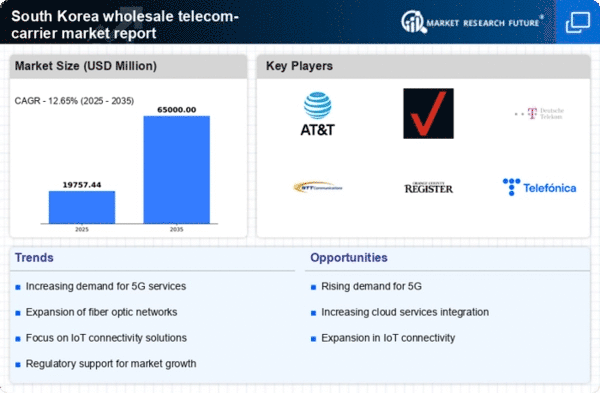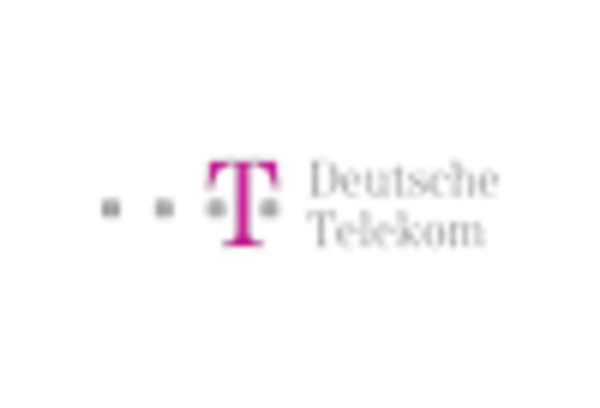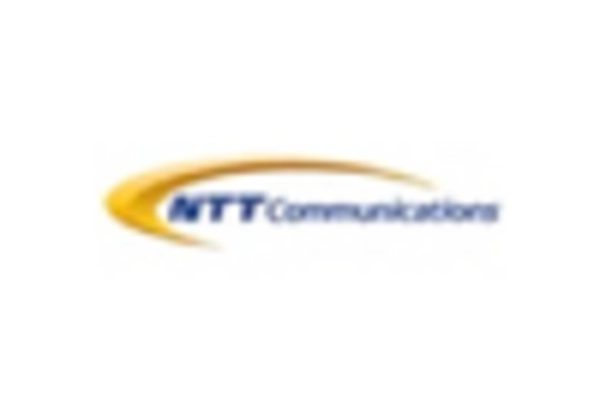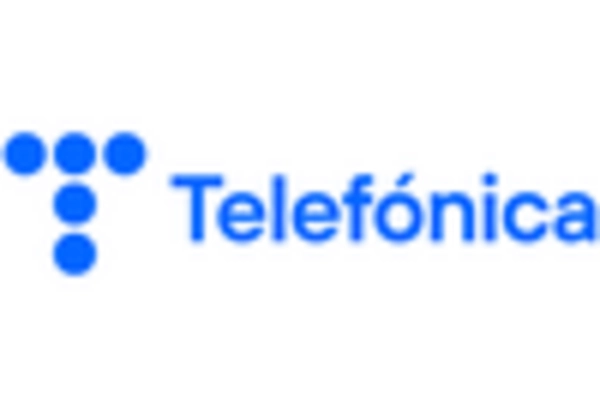Rising Demand for Data Services
The demand for data services in South Korea continues to surge, driven by the proliferation of smart devices and the increasing consumption of digital content. As of 2025, mobile data traffic is projected to grow by approximately 30% annually, significantly impacting the wholesale telecom-carrier market. This trend compels carriers to enhance their infrastructure and expand capacity to meet consumer expectations. Additionally, the rise of IoT applications and smart city initiatives further fuels this demand, creating opportunities for wholesale carriers to provide tailored solutions. Consequently, the wholesale telecom-carrier market is likely to experience robust growth as carriers strive to accommodate the escalating data requirements of both consumers and businesses.
Emergence of New Business Models
The wholesale telecom-carrier market is witnessing the emergence of innovative business models that cater to changing consumer preferences. Subscription-based services and pay-as-you-go options are gaining traction, allowing customers to select plans that align with their usage patterns. This shift is indicative of a broader trend towards flexibility and personalization in service offerings. Additionally, partnerships with content providers and technology firms are becoming more common, enabling carriers to bundle services and enhance value propositions. As these new business models take root, they may reshape competitive dynamics within the wholesale telecom-carrier market, compelling traditional carriers to adapt or risk losing market relevance.
Increased Focus on Cybersecurity
As the wholesale telecom-carrier market expands, the importance of cybersecurity has become increasingly pronounced. With the rise in cyber threats, carriers are compelled to invest in robust security measures to protect their networks and customer data. The South Korean government has introduced regulations mandating stricter cybersecurity protocols, which could influence operational practices within the wholesale telecom-carrier market. This heightened focus on security not only safeguards infrastructure but also builds consumer trust. Carriers that prioritize cybersecurity may differentiate themselves in a competitive landscape, potentially leading to increased customer loyalty and market share. The ongoing evolution of cybersecurity strategies is likely to play a pivotal role in shaping the future of the wholesale telecom-carrier market.
Regulatory Framework Enhancements
The regulatory landscape in South Korea is evolving, with the government actively promoting competition within the wholesale telecom-carrier market. Recent initiatives aim to streamline licensing processes and reduce barriers for new entrants. This regulatory support is expected to foster innovation and enhance service offerings. For instance, the Korea Communications Commission has implemented measures to ensure fair access to infrastructure, which could lead to a more dynamic market environment. As a result, existing carriers may need to adapt their strategies to maintain competitiveness, while new players could emerge, potentially increasing market share. The overall impact of these regulatory enhancements is likely to stimulate growth and investment in the wholesale telecom-carrier market.
Technological Advancements in Network Infrastructure
Technological innovations are reshaping the wholesale telecom-carrier market in South Korea. The ongoing deployment of advanced network infrastructure, such as fiber-optic technology and next-generation routers, enhances service quality and reliability. These advancements enable carriers to offer higher bandwidth and lower latency, which are critical for supporting emerging applications like virtual reality and augmented reality. Furthermore, the integration of artificial intelligence in network management is expected to optimize operational efficiency. As a result, carriers that invest in these technologies may gain a competitive edge, positioning themselves favorably within the wholesale telecom-carrier market. The potential for improved service delivery could attract more customers and drive revenue growth.

















Leave a Comment